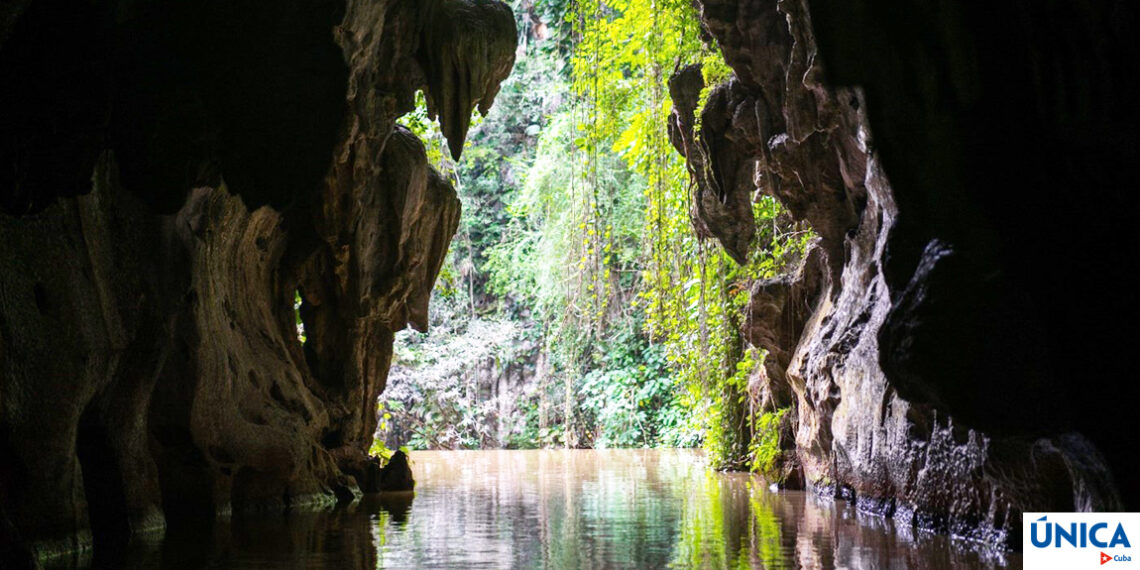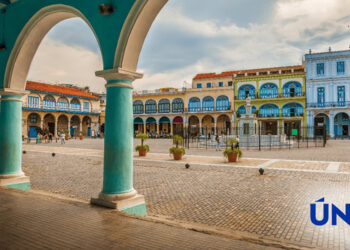Cuba is a country rich in flora and fauna, but did you know that it also has intriguing geology? Its many national parks and protected nature reserves contain a wealth of cave systems. These caves and caverns often create their own ecosystems and show us evidence of the geographical processes that formed Cuba as we see it today.
Cuba’s Caves in a nutshell
Since the Cuban archipelago consists of mostly karstic surface – 65 per cent of it is geology, to be exact – it’s understandable why its landscape is dotted with various caves and sinkholes. This piece of land originates from long ago when tectonic forces separated North and South America. Through time, it developed into a diverse cave-adapted fauna region.
This tropical island country is worth visiting not only because of its heritage, gorgeous sandy beaches, great music, and old classic cars, which are still in use only in Cuba. There are also many interesting caves and sinkholes to be seen by everyone. The many caves differ in structure and length, so there’s a cave suitable for everyone’s physical abilities. Some of the cave types you will find here include the classic solution tube caves typical for inland Cuba, caves with a slumping fracture, and those abundant in water.
Cuevas del Indio

La Cueva del Indio, also known as Cave Indio, can be found in the Viñales valley area. One of its highlights is the San Vicente River, which flows through the cave. It is abundant in various geological formations such as stalagmites and stalactites. It is also home to many cave paintings and other archeological evidence of indigenous civilisations. Visitors can observe these, while travelling through the cave by motorboat. The so-called Indian Cave is a good choice if you are travelling with children since it has lighting and handrails installed.
The Viñales valley, known for its historic tobacco plantations, is only a few-hour drive from Havana. Still, this area is also home to the scenic Sierra de los Órganos mountain range and a few stunning caves. The Vinales National Park has been declared a World Heritage Site by UNESCO.
Cueva de José Miguel
This medium-sized cave is ideal for a date-night outing or a casual alfresco lunch. It is also easily approachable as you don’t need to undertake a steep hike to get to it. The cave resembles a 140-meter long tunnel surrounded by limestone cliffs in the Viñales valley. The clearing before the cave opening has been transformed into an entertainment venue called el Palenque de los Cimarrones.
Visitors are welcomed by the friendly restaurant staff and can sit under thatched roofs just outside the cave. Afrocuban dishes, live music and dance performances are some of the things you will encounter when visiting the Cueva de José Miguel. The restaurant actually turns into a club in the evening, becoming a genuine Cuban party spot.
Cuevas de Bellamar

Matanzas is not that far from Havana and is often referred to as the City of Bridges. Other than having numerous bridges and canals above the surface, the town boasts complex cave systems underground. On the outskirts of Matanzas you will find the Cuevas de Bellamar.
Considered more than 300,000 years old – the oldest in the country, Cuevas de Bellamar is among the most popular in Cuba. They say that there are some 2.5 km of underground corridors to explore. The main attractions here are the so-called ‘Fountain of Youth’ and the ‘Fountain of Love’. These are ponds at the end of an underground waterway where visitors are encouraged to drink to gain longevity and love.
Geda Cave
Another stunning place deep in the heart of Viñales Valley is the Geda Cave. It’s beautifully preserved and rich in natural treasures and fossil remains. Here you will find underground lakes, tunnels, and Geda Roses, which are formations created by water dropping on a false floor.
The Geda Cave is known as one of the three most beautiful Cuban caves. Located in the ‘Silent valley’, its entrance is shielded by the Mogotes hills famous in Viñales. With 5km of underground galleries to explore, it’s no wonder why Geda made an appearance in one speleology documentary. The cave is one of the reasons why Pinar del Río is often referred to as “the capital of Cuban limestone”.
Caverna de Santo Tomás
The so-called prince of Cuban caves, Caverna de Santo Tomás is also located in the Viñales National Park. It is also home to the National Speleology Training Centre.
The cave is 46 km long, being the largest one on the island and the second largest on the continent. With 8 levels of galleries and a 1-kilometer section being available to visitors, you can enjoy this cave by joining a 90-minute guided tour. Besides stalagmites, stalactites, and columns, bats can be seen hanging from its ceilings. There is also a large underground river which adds to the tranquillity of the place. The organized tours come with the necessary equipment provided.
Cueva de la Vaca

Cueva de la Vaca, or Cow Cave, is a cave through running through one of the Mogote limestone hills in the Viñales valley. To reach it, you go up a short staircase, leading up to the entrance. The cave is approximately 100 meters in length and has two entrances on opposite sites of the Mogote. Tourists can walk through its corridors alone but should bring a headlight or a mobile phone.
This cave is situated a short distance from Vinales town and can even be seen from the city centre. The nearby valley is a great area for horse riding, hiking, and rock climbing in particular. Some of the most popular sport climbing routes can be found just at its entrance.
Cueva de Ambrosio, Varadero
Thirty minutes west of Matanzas, you will find Varadero, a place popular among tourists due to its pristine sandy beaches and luxurious resorts. One of the most popular caves here is the Ambrosio Cave, named after the Cuban researcher Antonio Núñez Jiménez, who discovered it in 1961. The cave resembles a 300-meter-long gallery and features original Pre-Colombian cave paintings. It used to be inhabited by natives who had a settlement there. Later, the cave was used as a shelter for pirates and revolutionaries.
Guided tours are available in Varadero through Love Cuba.
Cueva de Saturno

The Saturn Cave is a fissure popular for its lovely underground swimming lake. It is located 12 km from Matanzas and is near to Coral Beach. Going for a dip in its blue waters is a great way to cool down after a hot Cuban day. Another way to enjoy this cave is to join an organised diving excursion — many sections of the lake are deeper than expected and host a number of cave-adapted fish species.
By far the most popular activities at Cueva de Saturno are swimming and snorkelling. You can even observe the stalactites hanging from the ceiling, while fueling up with food and drink from the snack bar.
Santa Catalina Cave
Santa Catalina Cave is situated along the road between Matanzas and Varadero and was declared a National Monument in 1996. This is one of the rare caves in the world where visitors can admire “mushroom stalagmites”, which were formed due to inflows of salt and fresh water over thousands of years. It is advised to go in accompanied by a guide because its location is tricky to find.
Final thoughts
There is no end to Cuba’s Caves and Caverns. With many underground cave systems and interesting geological formations, Cuba is a dream destination for climbers, speleologists, and curious tourists alike. Nothing beats seeing these magnificent caves with your own eyes.
Love Cuba is the UK’s leading Cuba holiday specialist. Click here for more info on Cuba holidays, Multi Centre Cuba Holidays or Tailor Made Cuba Holidays please don’t hesitate to contact our friendly team of Cuba holiday specialists on 0207 071 3636 or email enquiries@lovecuba.com





























